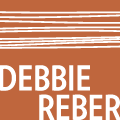 It’s not absolutely necessary to be a research junkie in order to write a nonfiction book, but it certainly helps.
It’s not absolutely necessary to be a research junkie in order to write a nonfiction book, but it certainly helps.
During my initial book dreaming and scheming phase, I typically spend a chunk of time in full-on research mode. If you’re someone who likes to write first, ask questions later, the idea of putting a pause on things to research might not appeal to you. But stay with me here.
Researching your idea is beneficial in a few critical ways:
ONE: You’ll gain clarity around not only what your book IS, but what it ISN’T.
TWO: You’ll uncover the most timely themes related to your subject.
THREE: You’ll confirm that you’re on the right track (or that you need to rework your concept).
So, what exactly do I mean when I say to “research” your book idea? I’m talking about setting aside a limited amount of time to explore your book idea from different angles, as well as connect with potential readers to get additional insight into potential themes for inclusion.
9 ESSENTIAL TIPS FOR RESEARCHING YOUR NONFICTION BOOK IDEAS
1. SURVEY WOULD-BE READERS: Reach out to your potential audience and ask for specific feedback on your ideas—the insight you get from the people you see as the end-user of your book will be invaluable. Click here to see an example of a survey I did for my most recent book, Doable. I typically use Survey Monkey, but click here for a list of survey tools. Bonus? Survey responses can give you relevant content in the form of quotes, statistics, and anecdotes to weave into your book proposal.
2. READ RELATED BLOGS: Find out who’s blogging about your topic, what they’re saying, what readers are saying, and which posts are getting the most play. Being aware of the online conversations surrounding your book topic will likely spark ideas for themes you’d like to include in your book.
3. CONNECT WITH RELEVANT FACEBOOK GROUPS: There are over 600 million Facebook groups, and likely at least a handful will specifically relate to the subject you’re planning to write about. Active Facebook groups can give you a ton of targeted information about the pressing issues and concerns regarding your area of interest.
4. LOOK FOR NEWS COVERAGE: Keep an eye on current events that relate to your book topic. Not only will this provide you with insight into how your subject fits into the current social commentary—you’ll get valuable content you can use to position your eventual book proposal.
5. GIVE YOURSELF PERMISSION TO RESEARCH. Researching isn’t procrastination…it’s part of the writing process. With that said…
6. SET ASIDE A LIMITED AMOUNT OF TIME FOR RESEARCHING YOUR IDEA. Put an end-date on your research phase to ensure you don’t get lost down the rabbit hole.
7. PICK AND CHOOSE WHAT YOU USE. Remember—you don’t have to listen to everything everyone has to say about your idea. Take what resonates and ditch the rest.
8. DON’T GO IN A DIRECTION JUST BECAUSE YOU THINK IT WILL SELL. While you want to consider your readers’ needs when you write, at the end of the day, you have to write the book that wants to be written.
9. CHOOSE A METHOD FOR COLLECTING YOUR RESEARCH. Whether you use a digital system like Evernote, Pinterest, or Google Drive or you go old school with pen and paper or 3-ring binder, find a way to gather and sort the most useful research you come across. You’ll want it easily accessible once you begin writing.
In my next post, I’ll write about how and why to do a comparative analysis for your book.

